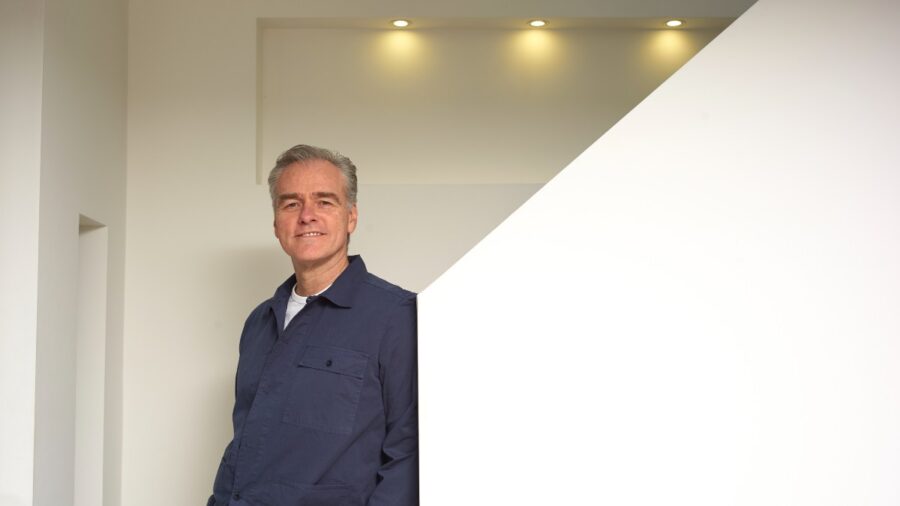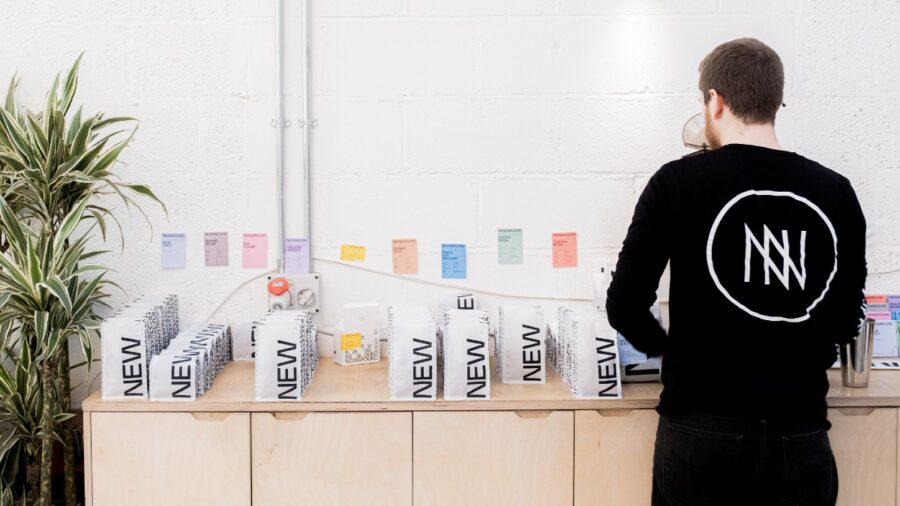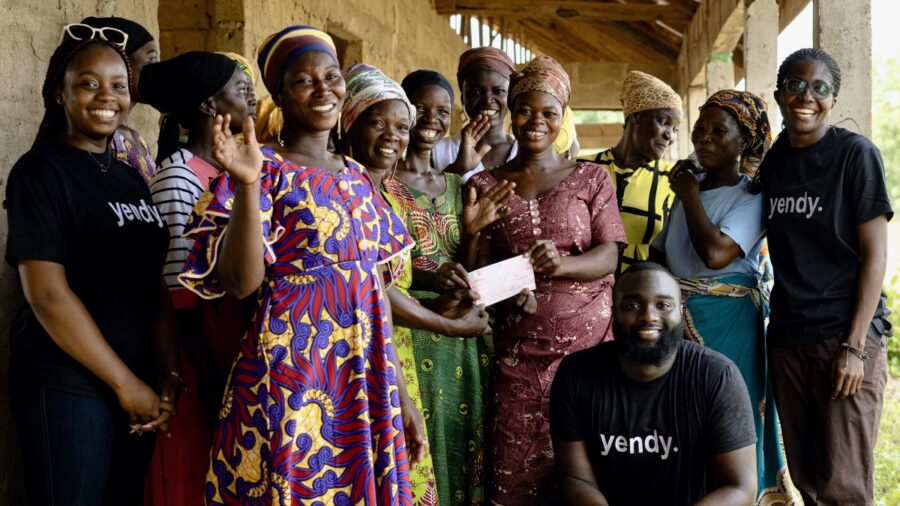[ad_1]

With a CV featuring the likes of Goldman Sachs and Morgan Stanley, Gordon Eichhorst is perhaps the last person you’d expect to call for a rethink of capitalism. But after working closely with sustainable startups, he thinks that something’s got to change.
Eichhorst now heads up three businesses: Opto Impact Ventures, an investment management fund which focuses on impact investing; Chorus Angel Network, where experienced investors can invest directly into impact startups; and Impact Central, a six-month accelerator programme for impact entrepreneurs.
And he now believes that impact business models are a blueprint for the future. “We have these huge and increasing problems – whether that’s to do with the climate or various social issues – but the structure of how money is flowing is not resulting in enough business resources being directed to solving them,” he says.
Charitable giving doesn’t go far enough, Eichhorst says. It’s about £10bn a year in the UK, he notes. That’s less than 0.5% of the country’s GDP of around £2.2tn. “So when people say, ‘We’re going to try to solve some of these problems by giving to charity’, that just doesn’t reach it. There’s just not enough money being deployed,” he argues.
ESG targets are another much-hyped approach. These are often favoured by larger, publicly listed companies, but they also fall short because they’re “more backward-looking”, Eichhorst continues.
“The problem with a lot of large companies is that they have inertia,” he says. “They’ve been around a long time and have spent billions of pounds investing in factories and supply chain structures. They are looking at their current business operations and making marginal improvements to current practices, in line with an ESG framework. Investors then think ‘I’m investing in these companies, so I’m ticking these ESG boxes’.”
But this will no longer cut the mustard with consumers, says Eichhorst. Eventually, they will look at large, global brands and think that they “haven’t really done anything”.
The startup itself doesn’t need to outcompete the multinational conglomerate. What it needs to do is demonstrate a business model that works
A whole new business model
An impact business model differs from a conventional ‘for profit’ business because it operates with a double bottom line, focused on both profit and impact. Not only do the business and the mission side of it run alongside one another, they’re mutually reinforcing. Eichhorst calls this structure ‘collinearity’, meaning that as the business grows, it naturally increases its impact.
To illustrate his meaning, Eichhorst cites an example of ‘non-collinearity’. Imagine a business pays 1% of its profits out to charity. “In that scenario, they can decide whether or not to pay that 1%,” he explains. “It would not change the business.”
Instead, Eichhorst says that properly embedded collinearity increases the business’s growth potential, as the impact and the financial side compound each other. “That to me is a better investment than just a pure financial investment today, because there’s so much public interest in businesses doing more and acting in the right way,” he says.
The startups making an impact
New Ground Coffee, which was shortlisted for the UK Roaster of the Year in 2022, came through the Impact Central accelerator. Its business is coffee roasting, but its impact is the training and employment of ex-offenders.

After an initial investment of £60,000, the brand started out making a turnover of £10,000 a quarter in 2019. Sales revenue has since grown to more than £200,000 a quarter, despite tough market conditions. It’s approaching £1m this financial year.
“The brand has grown 20 times,” says Eichhorst. “Lots of people have tried to start coffee roasters, and most of them have failed. New Ground’s impact and their work with ex-offenders benefits them as a company and creates a USP. Not only do they have an amazing product, but they also have an amazing story.”
New Ground’s products are now sold worldwide, including via Selfridges in the UK. As of February 2023, it was approaching 10,000 hours of living wage employment given to men in the prison system.
Responding to new expectations
Building this kind of purpose into the bottom line can be a USP, but also helps to future-proof the business. Eichhorst says this is particularly important given that “more than 45% of gen Z consumers are suffering from what we would call eco-anxiety”.

Julian Boaitey agrees. He’s another Impact Central alumnus, having founded ethical skincare brand Yendy Skin in 2021 with the mission of “revolutionising the supply chain for small-scale female farmers in sub-Saharan Africa”.
Consumers now demand more from brands, he says. “They’re becoming increasingly conscientious about sustainability and want to know more about the journey the ingredients have taken in order to get to the finished product.”
Every product sold by Yendy Skin contains at least one ‘African superfood’ ingredient, traceable from farm to bottle. There’s also a commitment to fairer working conditions and fairer pricing for farmers.
“The aim is to build a business that ultimately focuses on a triple bottom line of people (all our stakeholders); planet (the natural environment and sustainable packaging materials); and profit (return for shareholders, creating employment, and generating innovation),” Boaitey adds.
How to monitor impact
The impact model is not without its challenges. For example, how do you assess the impact? “The impact side is not a straightforward measurement,” Eichhorst admits. “For example, if you could either improve 1,000 people’s lives slightly or transform 10 people’s lives completely, how do you compare the two?”
New Ground Coffee has an overarching goal of reducing re-offending across the Thames Valley area. It has so far had a 100% success rate with the ex-offenders it employs.
The aim is to build a business that ultimately focuses on a triple bottom line of people, planet and profit
For Boaitey, measuring impact poses a challenge. “There are dozens of impact frameworks and methodologies that can be adopted to formalise the assessment process,” he says. “For now, though, our key driver and measure of success is growth.”
Eichhorst accepts that survival is imperative at this early stage. “You can’t shortcut time, as startups need time to grow,” he says. And it’s still early days for this business model too, meaning the investment opportunity and the pool of available cash remains relatively small.
He is often asked how the startups could make a difference when they are so tiny. “The point is that the startup itself doesn’t need to outcompete the multinational conglomerate,” he says. “What it needs to do is demonstrate a business model that works in terms of being both profitable, so that it can grow, and one that can also make a real difference in an impact way,” Eichhorst says.
“If it can, investors will support it. And as consumers support the brand, the products will start to get traction. Ultimately, it will force the larger public companies to respond because it will start hitting them financially.”
That, then, is Eichhorst’s endgame. For sustainable capitalism, it seems that survival of the fittest is still the ultimate rule.
[ad_2]
Source link
